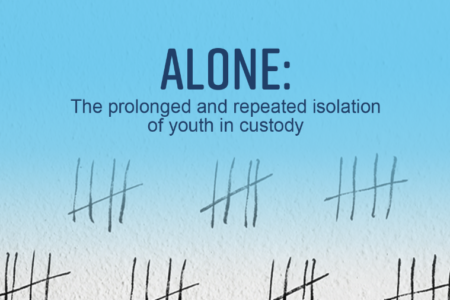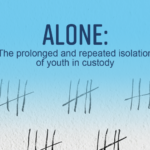Bits and Pieces: Dealing with Reality
Missing Magnetism
Watching, listening, net-surfing, one experiences “the news” and wonders – is there a deeper story that connects all the dots?
When there is an underlying coherence and unity to news stories, I think it is apparent. Think of iron filings on a paper with a bar magnet placed beneath: the bits of iron arrange themselves in a pattern of lines. That imitates thematic unity, a coherent structure that has meaning. Historians used to pretend, in a more confident age, that History would reveal the meaning of all past news stories, but historians rarely have such presumption anymore.
The day I write this, Woodstock, Ontario is in the news a great deal, and that name, Woodstock, has a resonance for me and my Boomer generation, so I must say something about that. But there is not a column’s worth of things to say, and I will move to other topics.
There’s the Clinton-Trump presidential contest in the USA; I have limited things to say about that too. And a more general question about human behaviour draws my attention.
I see no connection between the subjects of my interest; this column is bound to have the character of a scrap-book, with topics pasted in side by side. There will be no theme here today, readers.
Two “Woodstocks”
Woodstock in New York State was the scene in 1969 of the most-celebrated mass-audience music and arts fair, “A Festival of Love and Peace,” in modern history, perhaps in any history. Its imagery is iconic of the 1960’s. Peace, love and liberation; sex, mud and nudity; drugs, dance, and rock ’n’ roll, were the enthusiasms of the day. The look and feel of the event has been captured on film and recordings almost everyone have seen or heard. Anyone over 30 today knows about the importance and significance of that festival.
The symbolism is what matters here: the example that Youth could mobilise in one mighty upsurge of idealism, to transform the political and social and economic landscape of America and the rich West more generally, is what has stayed with us, no matter if we ourselves were at Woodstock. (It is a notorious joke that if all the people who claimed to be at the festival truly were there, there must have been tens of millions – such is the wish of people who didn’t attend to attach themselves to an event of such cultural magnitude.) The utopian visions, of the better future the coming generation would make real, are available to us — in print, in documentary film, in lyrics of pop music from that time. We can, without much effort, know what youth were hoping for in 1969; at times, I have felt like weeping for the loss of the optimism of the era.
And now, in 2016, Woodstock, Ontario, is momentarily the symbol for a very different, very much darker, ethos of modern youth. A crisis of teen suicide is in focus in this small city, distilling the essence of the same crisis in many other cities of modern wealthy societies. Mass shootings at high schools such as Columbine are another ingredient of the darkness.
What is going wrong, that Youth now is not feeling the idealism, the heady empowerment, as the members of Woodstock Nation were feeling in 1969?
My intention is only to be suggestive, not definitive. The answer to my question for me is straightforward: the world of the future looked a whole lot better to young people in 1969 than in 2016, and the reasons for that seem obvious.
The US Presidential Election: America’s ruling class in decay
Young American voters are being given a choice between two people to be President, two whom no “youth movement” seems to find inspiring nor uplifting. The candidate with clear youth appeal is Bernie Sanders, the self-described socialist; he was not acceptable to the Democratic Establishment.
The two parties’ primary contests and the various democratic processes and institutions of the US have brought voters to this, a choice of candidates whom no one can credibly call exciting, a race between two people who provoke no idealism. Youth was fired by the candidacy of Barack Obama in 2008. Who now remembers the passionate conviction of Obama’s slogans: Change. Hope. Yes We Can ?
Obama did not deliver on his idealism, for reasons now being thoroughly analysed by such giant intellects as Noam Chomsky, Thomas Frank, and Chris Hedges. Visit www.truthdig.organd www.tfrank.comto read some of this.
Eight years later, Sanders cannot fire up the same sort of movement as Obama did, for Sanders seemingly has his age, race, gender, and regional base all wrong if he wanted to mobilize the Obama constituency.
In other editions of Arc, I have explained the political sociology I apply to understand “Government”.
Succinctly: there is a ruling class, the political system is its instrument, and an elite of cultural leaders has the social function of operating the system so the ruling class remains secure and obscure. Under medieval feudalism, the ruling class and the elites did very little to disguise the real nature of power relationships, but in our democratic age, sophisticated systems work at the creation of veils and false appearances over real power.
In the modern West, the people must believe they are sovereign, though there is in actual fact a minority of capitalists, the ruling class, who rule. Capitalism now is in extremely low repute among large numbers of democratic citizens, thanks to the 2008/09 events on Wall St. The degradation of the planet, war, climate change, poverty, and gross inequality, all visible to any person on earth with access to the internet, are clear evidence capitalism is a threat, not the promise of progress as we once believed.
When a ruling class is in crisis, its political system functions poorly, and that is what I see in the USA now. The ruling class is not pleased by the situation.
Hilary Clinton, past her prime because she lost to Obama eight years ago, and too burdened with a record of policy that has hurt ordinary Americans and people beyond the US, is unappealing. Merely because she is a woman and might advance feminism is insufficient, for we all have heard of Margaret Thatcher and Indira Gandhi. Her husband’s legacy is increasingly exposed as disastrous for the middle class and the poor, and she endorsed his policies; his shameless pursuit of wealth and service to the wealthy is blatant, and Hilary is no different. But she apparently believes she still has a radical core. Absurd.
Donald Trump, a successful capitalist, never bothered with politics until now, and his lack of a political past seems to be his number-one asset with angry white males. I myself have been educated in how elites can be overruled in the US by democratic balloting as I watched Trump win the Republican nomination in defiance of the party elite. What his policies will be, what kind of president he might become, are not easy to know, given only his public personality and his business record as clues to who he is. He will make it up as he goes along; there are checks and balances to his will and to block the mistakes he will have to correct. I am not more anxious about his Presidency than I am about hers.
The American ruling class performed brilliantly in their own interest in having Obama elected in 2008, deluding the masses that they finally had one of the elite on their side who would carry a revolution forward for them. Now in 2016 the same ruling class cannot find a candidate to win the primaries and be seen as a person to trust, to like, to believe in. This is a ruling class in crisis.
Human Character: we know it when we see it
I just mentioned Donald Trump’s “personality” (a merging of “personal” into one word with “identity”). A near-synonym is “character”. What is individual human character? Does it matter as much as collective social forces?
As I write this, Queen Elizabeth II of the British Commonwealth, Canada’s queen, is being feted for her 90th birthday and 63 years on the throne. The qualities in the royal person most praised by media’s talking heads are her traits of character: devotion to duty, work ethic, seriousness of purpose, wit, intelligence. It is asserted by royal-watchers that the personality of the head of state has an important impact on politics, significance deeper than mere ceremonial and traditional observance of the historic durability of monarchy. It is assumed that the character of a US president is similarly crucial to how power is exercised in the world’s only superpower.
Character matters, it is said. There is no disputing that. But how to assess the effect of individual character as against collective, mass causes of events, is at present beyond the ability of our historians, social scientists, and neurosciences.
“The cult of personality” was responsible for much that went wrong in the USSR under Stalin, according to theorists of the Soviet communist party after the pathological despot, author of the death of tens of millions of his subjects, had died. Khrushchev exposed the cult in 1956 and launched supposedly into a new era of building socialism. Another great personality, Gorbachev, is credited with dismantling the Soviet empire with perestroika and glasnost.
A similar cult of personality is said to have formed around Mao Zedong in China and led to similar violent deviations from socialist legitimacy. Mao was “70-percent correct” according to his partner in the Chinese Revolution, Deng Xiaoping, who outlived Mao and had the last word. A capitalist-market China under communist party rule, such as we now witness (its slogan: “Enrich yourselves!”) would have been impossible had Maoist doctrines prevailed.
Stalin and Mao had such distinct and overpowering personalities that they shaped history. Hitler and Napoleon are other exemplars of this phenomenon. The common lot of humanity must accept our personalities will not leave such a profound imprint upon the course of events. I am content with that.
Our personhood sets a stamp on our own personal histories, without a doubt. “Character is destiny”, in the words of Aristotle. This applies to all of us, not just the great ones of history, and we cannot expect to have a life-path that unfolds contrary to the character within us.
Plato laid out his theory of character and the inner daimon which guides our destiny; the book to read on this subject is surely The Soul’s Code by James Hillman, eminent Jungian psychologist and best-selling author.
The great Greek thinkers were not the first to apply themselves to rational understanding human character. Astrology is the most ancient science of characterology we have, connecting individuals to the stars and heavens. The very fact that so many cultures in such varied places and times have all produced their own versions of a science of astrology says to me that there is something essentially truthful in the human intuition to understand our character by reference to forces not entirely of our own choosing .
Astrology has been subjected to withering critique by the representatives of materialist/laboratory/mathematical Science in the West. No credence is given now by our intelligentsia to the explanations astrology offers for problematic human behaviour or pathology; we turn to psychiatry, psychology, and therapy, for that. Mental-health science, we may call it. Understanding the whole phenomenon of personality is not the focus of therapeutic sciences of mind; unless a person is diagnosed as being unhealthy in their psyche, their character is not subjected to a scientific analysis, and so astrology and other systems of character typology continue to be enormously popular.
The psychological science of Freud and his estranged disciple Jung were much concerned with character. Freud’s tripartite psycho-dynamics involving ego-id-superego was his attempt to create a model of character, and his focus was clearly upon “pathologies” of behaviour and thinking.
Jung did much more in regard to the study of character, and he endorsed the Myers-Briggs Personality Inventory which divides humans into 16 typologies measured on four spectrums. (I am an INTJ; but the T may be F depending on the day…) Jung is responsible for the basic distinction between introvert and extrovert which has such popular appeal.
Gods and goddesses have personalities in the religion of all pre-modern peoples, while the modern secular age pays little attention to who God is. The stories of the gods typically revolve around the effects of their characters, their lusts, rages, jealousies, benevolence. Ishtar, Kali, Krishna, Zeus, Marduk, Loki, Thor, Mars, Lugh, Raven, Coyote and a plethora of other divinities provide us with some of the greatest literature of early human imagining, and these deities were redolent of character traits that drive the motivation and action in the myths. Without lucidly-drawn characters, these gods would not have endured in literature. Without character, their relevance to humanity is diminished.
YHWH in the oldest parts of the Hebrew Tanakh such as Genesis and Exodus most definitely has a character, and a most violent, angry, egotistic, vengeful personality he is. The embarrassment of the horrid character of the Israelite God in his earliest appearances is usually explained away by reference to the dim level of consciousness of humans at the dawn of monotheism, requiring that God reveal himself only in incremental or evolutionary stages to the unfolding mentalities of his people. God evolved over time, it seems.
Jesus of Nazareth, the Christ, was somewhat under-described as a character in the gospels, and Siddhartha Gautama, the Buddha, also suffers from a lack of full, realistic description of his personality. These two (teachers, gurus, saints, prophets, rabbis?) were fated to be elevated beyond the human norm, and so, humans writing about them did not allow the record to reveal traits other than love and wisdom and justified wrath in the character of Jesus or Gautama. We have less to go on about Jesus and Siddhartha as characters than we have about the great pagan gods of ancient Europe and India.
For me, the meaning of these stories of ancient “pagan” deities with powerful personalities is rather obvious: humans imagine gods as simply human beings with a lot more power, with immortal lifespans and supernatural capabilities. Kings and emperors identified themselves with gods because they indeed had immense power over their subjects. But if one wants to find some more profound aspect of the human, more noble than our drive to plead and pray for favours, for protection or fortune, one cannot look to the tales of these kinds of gods. Mythology is, like astrology, a form of early human understanding of human lives, not of spiritual investigation.
The “character” of nations or time-periods
Common parlance and common vocabulary includes the idea that there is a “national character” for an English person, an American, a Native, etc. Such notions are grand generalizations about the cultural effect on character of living in a nation with strong traditions, but these are of limited use in understanding individuals. I am Canadian. What does that tell you about who I am as a person? Extremely little.
Similarly, although we may speak casually and colloquially about what was typical of people in “Victorian times” or in “the Sixties” – those kinds of large generalizations do not help one understand much about a single person. An age might have a zeitgeist (literally, time-ghost) that seems to characterize its attitudes in politics or sex or art, but the supposed character of a decade or century is simply intellectual shorthand and symbolism, not very factual.
It is my hope, and I do not know why I feel this way, that neuroscience and the “science of consciousness” — as being developed by those who study our grey matter, its energies, its chemicals, its phenomena — that can explain how an individual has a “character.” But I do not believe that neuroscience can ever explain spirit or soul, so I am probably totally inconsistent. There is a name for that: cognitive dissonance. Two incompatible beliefs in the same mind.
Conclusion
Just as I am winding up my writing, the news story that is swamping our media is (what is being called) “the Orlando massacre.” It stands in no clear relationship to my main topic today, and I am going to say little. The world is in a condition I call “very ill” but that is hardly new – most generations have had some people who think their times are uniquely dark.
Maybe a human capacity, of which we know little, is this: our spirits and minds are in tune with the physical and psychic condition of our environment. We have today, truly and not metaphorically, a global village. We are connected to one another by our technologies. There is a demonstrable linkage around the globe of economies, politics, and ideas, all causing effects in the manner of dominoes falling in a row.
The pain of people fleeing wars, the misery of people in famine and epidemic zones of the earth, the mental anguish of people gripped by their belief systems and feeling threatened by people who differ: these painful effects on humans are perceived even by humans who are not themselves having the direct experience. Add to that the knowledge that our planet is physically imperilled by our own activity, by what we do to our atmosphere and oceans and forests and other species of life.
There are over seven billion of us now, a unique fact in the history of the Earth. Surely, we feel each other in some aspect of our being.
Shakespeare put it like this: “the World is too much with us.”
People who commit acts of horrific atrocity seem to be more common. Could it be they are merely symptoms of the bigger pathology? Until the world feels less endangered, until our perception of the sum of misery and injustice changes, there will be individuals who take to violence, and others who will register the perceived reality otherwise.
In my circles, in the reading I do, the solution to this lethal material reality is spiritual. Human consciousness must transform, and positive change flows on from that essential process. It is dialectical rather than linear — consciousness and reality are interdependent, rather than one being prior.
And that, dear reader, is the best I can do for a positive end to this column.

























